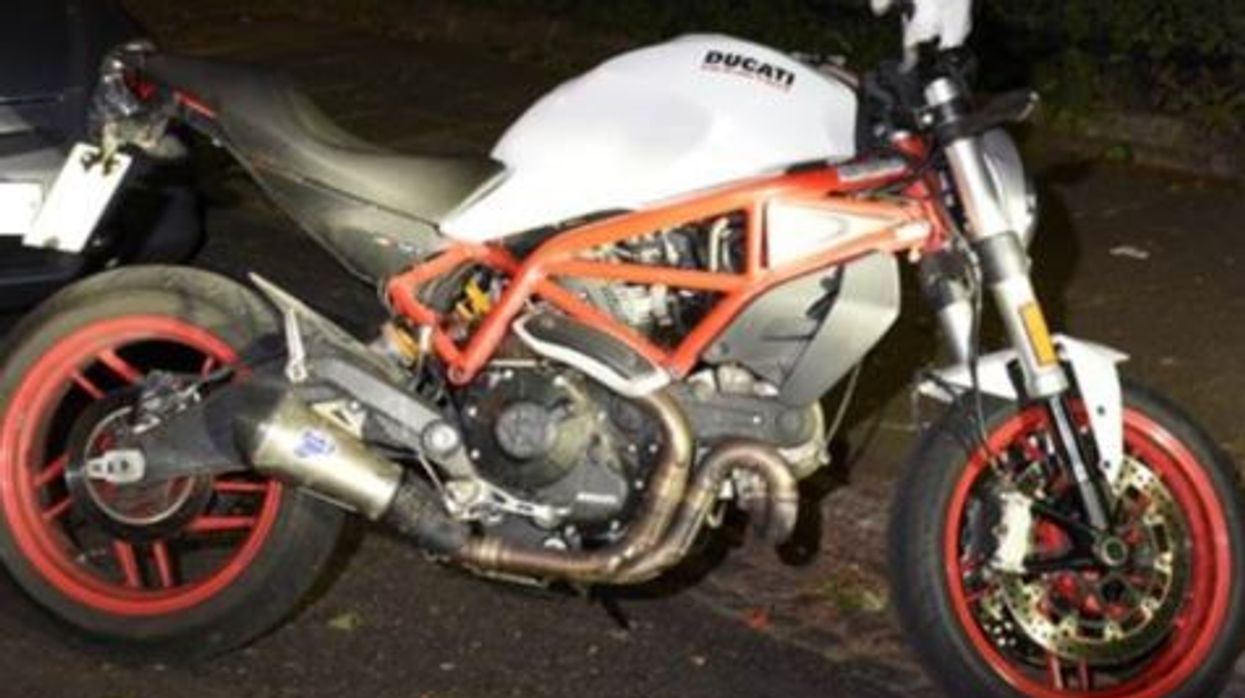IN THE wake of the shooting incident in Hackney, the Metropolitan Police released an image of a motorbike on Friday (31) and appealed to the public for assistance in identifying the vehicle.
Detective chief superintendent James Conway revealed crucial information about the perpetrator's mode of transport—a Ducati Monster motorcycle, stolen in 2021 from Wembley, and bearing the registration plates DP21OXY at the time of the shooting.
The motorcycle's distinctive features—a white body, red chassis, and red wheels—serve as identifiers for potential witnesses or individuals with relevant information, he said.
A nine-year-old girl, believed to be from the southern Indian state of Kerala, is in critical condition following the incident.
Three men were also shot in the attack, which took place around 9pm (2000 GMT) on Wednesday (29) when a gunman fired at diners from a motorbike.
Authorities have urged anyone who recognises the vehicle or has information regarding its whereabouts to come forward. Conway stressed the significance of even the smallest details, stressing the pivotal role community members play in helping law enforcement bring the perpetrators to justice.
"I am particularly eager to hear from anyone who may have seen the motorbike on the day of the incident. Alternatively, perhaps you recognise it from being parked in a driveway or a specific location? Or do you know someone who has been using this bike at any point over the past three years? It's worth noting that it may not have always displayed those registration plates," Conway said in a statement.
"Any information, regardless of its perceived significance, could prove to be vital. This shocking attack likely involved pre-planning, indicating that there are individuals who possess crucial details essential to our investigation."
He revealed that the young victim 'remains in a critical condition'.
"We remain in close contact with our colleagues in the NHS, who have been working around the clock to provide urgent care to the victims, including the young girl," he said.
"Specialist family liaison officers continue to support her family. The thoughts of everyone at the Met remain with the girl and her family at this unimaginably difficult time."
Two other men aged 44 and 42 remain in hospital in a stable condition, with one facing life-changing injuries. The third man – aged 37 – has been discharged from hospital.
Erim Metto, CEO of the Turkish Cypriot Association, added: “As a community we are shocked by the incident that occurred at a restaurant in Hackney which has led to four people being shot, including a young child. We urge anyone from the Turkish and Kurdish communities that may have any information to come forward and speak to police.
“If you do not feel comfortable to speak with police directly, you may do so through your community leaders, your faith leaders, Turkish Police Association or anonymously through Crimestoppers. We as a community stand against violence and gun crime.”
Public can call 101 or the Met's dedicated incident room on 020 8345 3865 or pass information on anonymously via Crimestoppers on 0800 555 111.





